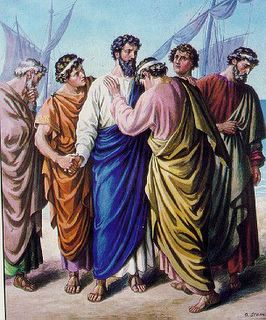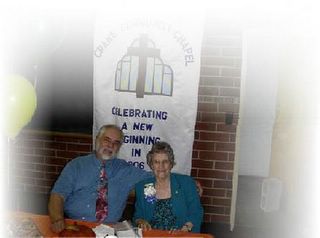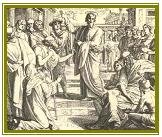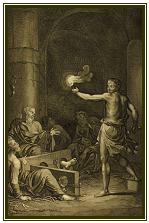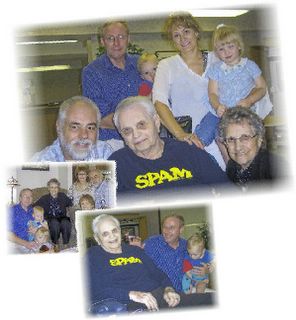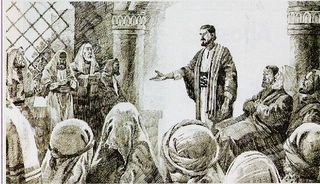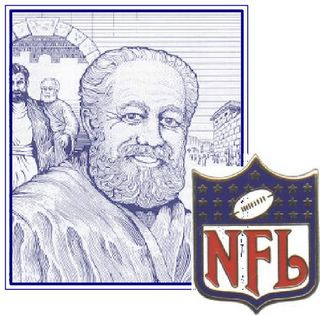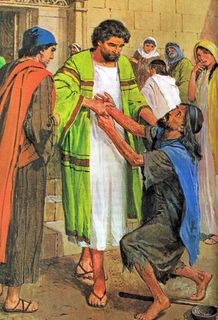 Ever listen to a three-year-old tell a Bible Story? The details are there, but the chronology is wide of the mark! A few days ago, I overheard my daughter Selah telling her brother about the shepherds and the baby Jesus sitting down to eat dinner with the disciples before they helped Zacchaeus climb down from a tree. Cute and amusing, huh? Well, I’m about to recount the story of Noah’s Ark and the Great Flood along with the birth of the Savior. No, Selah is not writing my sermons for me this month. There are many reasons why the story of Noah’s Ark is significant to the Advent of Christ and valuable in understanding the Why of Christmas. Let’s look…
Ever listen to a three-year-old tell a Bible Story? The details are there, but the chronology is wide of the mark! A few days ago, I overheard my daughter Selah telling her brother about the shepherds and the baby Jesus sitting down to eat dinner with the disciples before they helped Zacchaeus climb down from a tree. Cute and amusing, huh? Well, I’m about to recount the story of Noah’s Ark and the Great Flood along with the birth of the Savior. No, Selah is not writing my sermons for me this month. There are many reasons why the story of Noah’s Ark is significant to the Advent of Christ and valuable in understanding the Why of Christmas. Let’s look…First, Jesus told us that what characterized the times just before the flood will characterize the times just before His second coming: “As it was in the days of Noah, so it will be at the coming of the Son of Man.” (Matthew 24:37) So, what characterized the “days of Noah”? Scripture tells us it was a time when “men began to increase in number” (Genesis 6:1); and “the earth was corrupt” and “full of violence” (Genesis 6:11). Read a newspaper or watched the television news lately? Sounds current to me. The world needed a Savior in Noah’s day just as much as it did some 2000 years ago in Bethlehem and just as desperately as it does today. (Do you see the connection to the manger yet?)
Another reason that it is worthwhile to revisit the flood along with the Christmas story is that the Ark is an example of the judgment of God. (Yes, He is a God of judgment – not just grace and mercy and Christmas love.) In Genesis 7:16, we read that it was God who shut the door to the Ark. God had appointed a particular day of judgment. He had been longsuffering, waiting for many years. Sadly, only eight people were inside the Ark. You can almost hear the sound of the door banging shut against the side of the Ark. Perhaps the echo from that sound resounded in the ears of thousands (even millions) of people who looked on and mocked Noah. But as the door shut, judgment had arrived. Only those who had gone through the doorway could be saved. Fast forward now to II Peter 3:5-7 where Peter tells us that just as God sent a flood to destroy the earth because of the wickedness of man, one day there is going to be a final judgment. This time by fire. And God’s Word is clear: “If anyone’s name was not found written in the book of life, he was thrown into the lake of fire.” (Revelation 20:15) (Is the Why of the baby Jesus coming into focus?)
One last reason why the flood is almost a prerequisite lesson for the Nativity story is that Noah’s Ark is actually a picture of salvation. The Ark is representative of our salvation through Christ. God has provided an Ark of salvation for each of us. It’s the baby Jesus!! Jesus said, “I am the door: by me if any man enter in, he shall be saved.” (John 10:9) Just as Noah and his family had to go through a doorway to be saved, we need to go through a doorway – the Lord Jesus Christ. He is our ark of salvation.
… Now, why did Jesus come to earth as a tiny baby? He came to offer that Salvation to each one of us. The event of Noah’s Ark and the Great Flood is a sobering warning to each of us that we need to be saved too! And that’s the essence of Christmas: We can be!
- Pastor Mark







